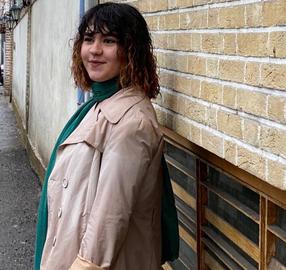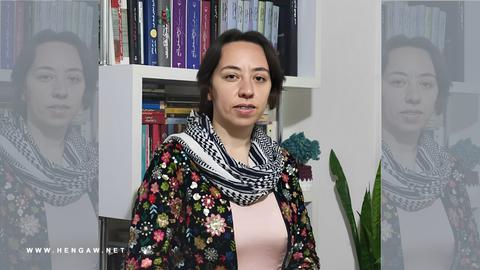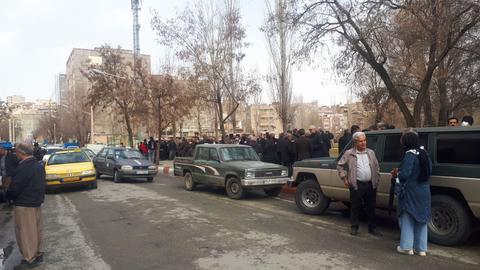A group of activists combating the phenomenon of femicide in Iran says it has documented 191 documented cases in 2022, equivalent to approximately one killing every other day, but the actual number is likely to be higher due to underreporting by family members and the authorities.
In its annual report, published on March 8, StopFemicideIran (SFI), an initiative of the Alliance for Rights of All Minorities (ARAM), says the number of documented femicides - the killing of a woman or girl for their gender - increased by 17 percent compared to the previous year.
SFI says this rise may be the result of “a higher tendency in the society to report cases and an increased rate of femicides implicating the Iranian Government.”
The report comes amid months of nationwide protests demanding more freedoms and women’s rights in Iran. The women-led protest movement was triggered by the September death of a 22-year-old woman, Mahsa Amini, in the custody of morality police.
The victims of femicide are predominantly young women between the ages of 20 and 35, SFI says.
In most cases, the victims’ names are not publicly known, which SFI says “may be part of a strategy to either protect the affected families from societal repercussions or bury the identity of the victims.”
The report points out that child marriage puts women and girls at risk of femicide. It cited the case of a man decapitated who his 17-year-old wife in February 2022, after she attempted to flee from their home “because she found herself in an abusive marriage to which she was forced to consent at the age of 12.”
The report insists that femicide is not an ethnic or rural problem. Most provinces witnessed incidents last year, and about one-third of all recorded cases were committed in Tehran. A similar number of cases occurred in the eastern provinces of West Azerbaijan, Kurdistan, Kermanshah, Ilam, Khuzestan and Bushehr combined.
In roughly 20 percent of the femicide cases, the perpetrators used their “bare hands” to kill their victim, beating or strangling them or throwing them from a building. A similar percentage of victims were shot.
In most cases, the perpetrator was known to the victim, with the husband being involved in the commission of the killing in nearly half of the cases. Other perpetrators included the boyfriend, brother, father, fiancé, family friend, male members of the victim’s family in law, neighbor, son or uncle.
In roughly 20 percent of the cases, the perpetrator is unknown or not reported.
In more than half of the cases, family and other disputes are the primary excuses that perpetrators cite for committing femicides, and these arguments sometimes arise from banalities. In August 2022, a man allegedly killed his wife in Tehran for spending too much time on the mobile phone.
A common form of femicide is “honor killings,” defined as crimes committed in the name of so-called honor, in which the perpetrators are typically male family members.
The information available about the documented femicide incidents suggests that perpetrators are often not facing charges at all or have received low sentences, a situation that SFI says “risks creating a culture of impunity around femicide.”
visit the accountability section
In this section of Iran Wire, you can contact the officials and launch your campaign for various problems
























comments